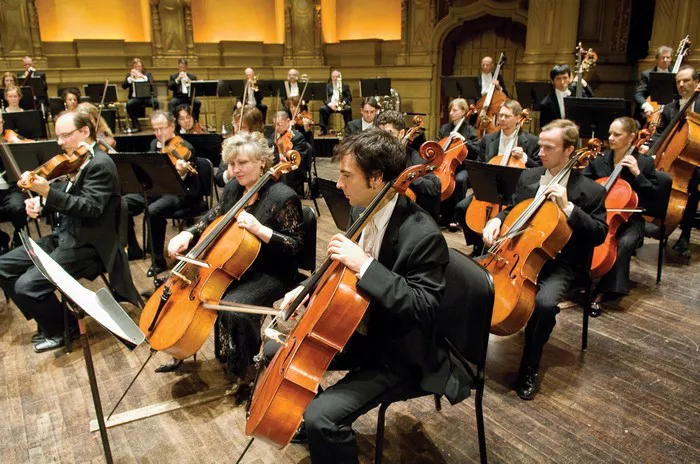The haunting melody of Für Elise has captivated audiences for centuries, its notes echoing through concert halls, music classrooms, and even popular culture. Yet, amidst its widespread popularity, a lingering mystery remains: who is the composer behind this timeless piece? Für Elise, one of the most recognizable and beloved piano compositions, continues to fascinate musicians and music enthusiasts alike, but its origins and the identity of its creator are shrouded in ambiguity. In this comprehensive exploration, we delve into the intriguing history and various theories surrounding the elusive composer of Für Elise.
The Enigmatic Masterpiece
Für Elise, translated as “For Elise,” is a solo piano piece in A minor, composed in the early 19th century. Its delicate yet stirring melody, characterized by cascading arpeggios and emotive phrasing, has secured its place as one of the most iconic works in classical music. Despite its popularity, the true identity of the composer remains a subject of debate and speculation.
Ludwig van Beethoven: The Widely Accepted Attribution
For decades, the prevailing belief was that Ludwig van Beethoven, the renowned German composer, was the mastermind behind Für Elise. This attribution seemed logical, given Beethoven’s prolific output and unparalleled contributions to the classical music canon. Moreover, the style and complexity of Für Elise align with Beethoven’s compositional techniques.
Supporters of the Beethoven theory point to various pieces of evidence, including early manuscripts and contemporary accounts, that associate the composition with the maestro. However, the lack of definitive documentation linking Beethoven to Für Elise has fueled skepticism and alternative hypotheses.
The Mystery Deepens: Other Candidates
While the Beethoven attribution remains the most widely accepted theory, several alternative candidates have emerged over the years, each accompanied by its own compelling arguments. Among the contenders for the title of Für Elise’s composer are:
1. Anton Diabelli
Austrian music publisher and composer Anton Diabelli is among the leading challengers to Beethoven’s authorship of Für Elise. Proponents of the Diabelli theory point to stylistic similarities between Für Elise and Diabelli’s other works, suggesting that he may have been the true creator. However, conclusive evidence linking Diabelli to the composition remains elusive.
2. Elisabeth Röckel
Elisabeth Röckel, a talented soprano and acquaintance of Beethoven, has also been proposed as a possible composer of Für Elise. Advocates of this theory argue that the title “Für Elise” could refer to Röckel herself, offering a personal connection that lends credence to her authorship. Nevertheless, the absence of concrete historical documentation complicates this assertion.
3. Ludwig Nohl
Ludwig Nohl, a 19th-century musicologist and collector, played a pivotal role in popularizing Für Elise when he discovered and published the composition in 1867. While Nohl is not considered a serious contender for the title of composer, some speculate that he may have misattributed the piece to Beethoven or another composer in his publications.
Unraveling the Truth: Challenges and Speculations
The quest to identify the composer of Für Elise is fraught with challenges, chief among them being the lack of definitive historical records and tangible evidence. The passage of time has obscured many details surrounding the composition’s origins, leaving scholars and musicologists to piece together fragmented clues and conjectures.
One prevailing theory suggests that Für Elise was not intended for public consumption but rather served as a private or pedagogical piece. This hypothesis could explain why the composition was not prominently featured in Beethoven’s catalog or documented in contemporary accounts.
Another possibility is that Für Elise was composed by an unknown or lesser-known contemporary of Beethoven, whose works may have been overshadowed by the fame of more established composers. The anonymity of many composers during the 18th and 19th centuries further complicates efforts to attribute Für Elise to a specific individual.
See Also: Classical Spanish Guitar Music
Conclusion
In the absence of conclusive evidence, the true identity of the composer of Für Elise may forever remain a mystery. Despite centuries of speculation and scholarly inquiry, the enigmatic origins of this beloved composition continue to captivate the imagination of musicians and music enthusiasts worldwide.
Whether the work of Beethoven, Diabelli, Röckel, or another composer altogether, Für Elise endures as a testament to the power of music to transcend time and space. Its haunting melody continues to evoke emotion and inspire countless interpretations, ensuring its rightful place in the pantheon of classical masterpieces.
As we continue to unravel the mysteries of Für Elise, one thing remains certain: its beauty and significance will endure for generations to come, a timeless reminder of the enduring power of music to touch the soul.

